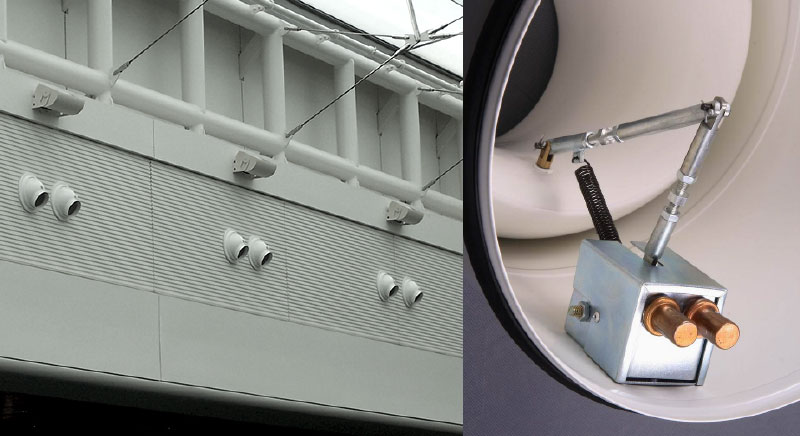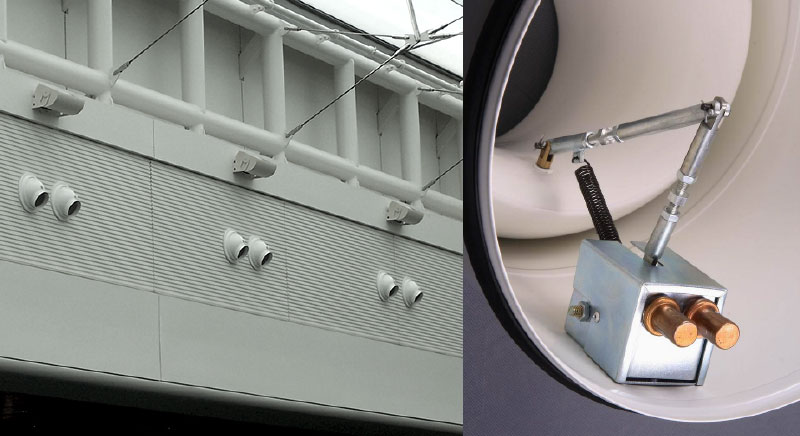Aiming at networked control system (NCS) with time-varying delay, a new distributed event triggering communication mechanism is proposed.

This mechanism can effectively save network resources and does not depend on the complete information of the state data. Several spatial distributed sensor nodes collect local information of the state data and transmit signals according to the sub-transmission mechanism. This paper first establishes a closed-loop NCS model with network delay and discrete event triggering conditions. Then, by using Lyapunov stability theory and linear matrix inequality method, sufficient conditions for the asymptotic stability of the closed-loop system are given. Then, the cooperative design method of the controller and the discrete event triggering mechanism is given. Finally, the numerical simulation is carried out by using MATLAB. The validity of this method is proved. Networked control system is a closed-loop system composed of sensors, controllers, actuators and other components through the network. Compared with traditional control system, NCS has the advantages of low cost, less wiring, easy maintenance and installation. However, due to the limited network broadband, the system is faced with delays, packet loss, instability and other phenomena [1-3]. In addition, because of the large-scale distributed architecture of NCS, the change of working environment and system modeling errors, the uncertainties of NCS become more and more, so it is necessary to study the robust stability of NCS for systems with both parameter uncertainties and external disturbances [4-5]. In order to effectively utilize network resources, event trigger control has become one of the hot topics of current research. Literature [6] proposes a discrete event triggering mechanism, which detects the state of the system at sampling time and calculates the corresponding errors, and then compares with the pre-set threshold to determine whether the state data of the system need to be transmitted. Based on discrete event triggering, the robust integrity of time-varying delay control systems with parameter uncertainties is studied in reference [7]. Document [8] adds external disturbance factors to the time-varying delay system of document [7], and designs the controller to ensure the system performance. Literature [9] and literature [10] study data sampling system and neural network control system respectively. In order to save limited resources, a decentralized event triggering mechanism is proposed. Inspired by this, the idea is applied to the networked control system.
Considering the existing literature on event triggering in networked control systems, it is assumed that an event triggering condition is used to determine whether the collected data can be transmitted through the network.


Compared with the existing literature, the decentralized event triggering mechanism proposed in this paper has the following innovations: firstly, several spatial distributed sensors are used to collect local information of state data, and then the corresponding event triggering conditions are used to determine whether local information needs to be transmitted. Obviously, the advantage of this design is that different event triggering mechanisms provide different transmission conditions, and each triggering mechanism only relies on local information of state data.

Secondly, we should improve the previous single-channel data transmission mode and adopt the idea of multi-channel transmission to alleviate the problem of bandwidth constraints as much as possible. Thirdly, the discrete event triggering mechanism has a wider significance.

The discrete event triggering mechanism mentioned in literature [6-8] is a special case of the discrete event triggering mechanism.
Based on literature [6-8], this paper considers NCS with uncertain network delay and improves the utilization of network resources by decentralizing event triggering mechanism. Firstly, sufficient conditions for asymptotic stability of closed-loop systems including network attributes, uncertain parameters and triggering conditions are proposed. Furthermore, a cooperative design method of state feedback controller and decentralized event triggering mechanism is presented. Finally, a simulation example is given to verify the effectiveness of the proposed method. Aiming at a class of uncertain NCS with time-varying delay, this paper proposes a novel event triggering mechanism, namely decentralized event triggering mechanism, thermostatic element which can effectively save network resources and reduce signal transmission rate while maintaining stability. At the same time, the method of collaborative design of networked control system controller and communication protocol is given. Finally, the effectiveness of the proposed method is verified by numerical simulation.
